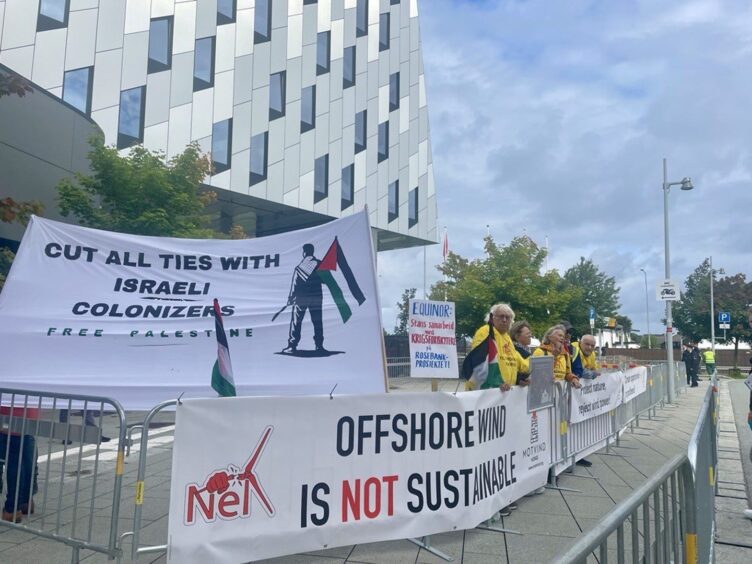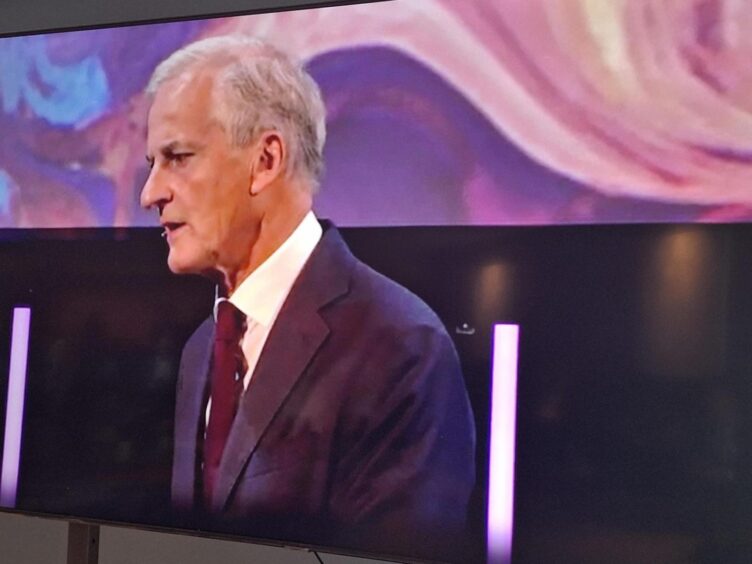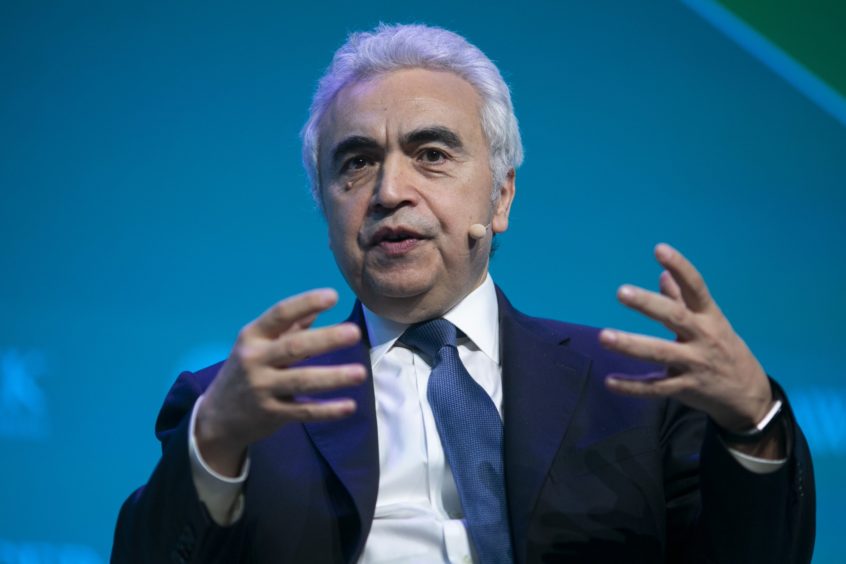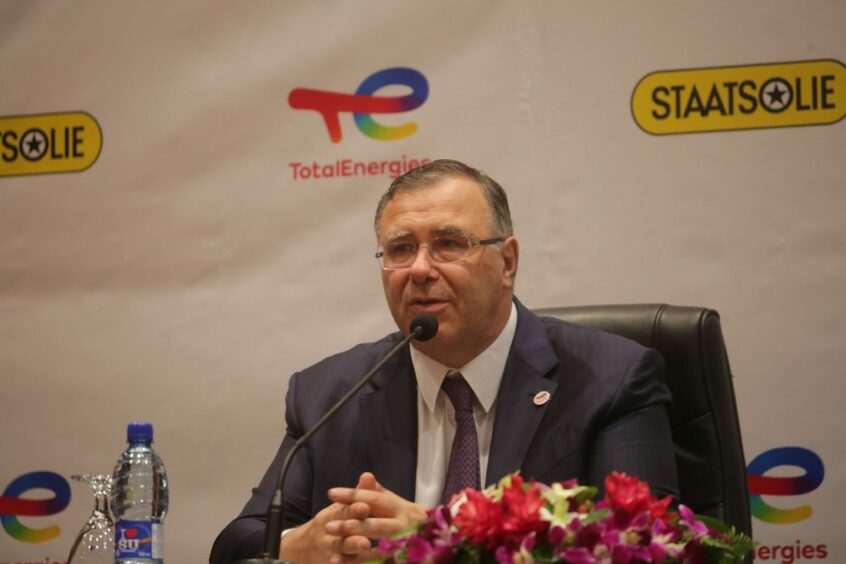Green transition is “the biggest challenge of them all” according to Norwegian prime minister Jonas Gahr Støren in his address the Offshore Northern Seas (ONS) show in Stavanger.
Speaking at the opening ceremony of the event which is celebrating its 50th year, the country’s Labour party leader highlighted Norway’s increased importance as Europe’s largest gas supplier and a major producer of oil particularly in the wake of Russia’s invasion of Ukraine.
“At the same time as we continue to provide security for our European friends we will push forward the energy transition,” he told an event that also featured a welcome speech from the Crown Prince Haakon.
He added: “Let Europe never again be dependent on one external authoritarian power for critical minerals or energy. That is Europe’s responsibility to find alternatives and Norway will be a part of that.”
The role oil and gas will continue to play as the world decarbonises to meet emissions targets was a major theme of the conference, although some protestors gathered outside, with a number seeming to be against offshore wind development as well.
Like the UK, Norway is pursuing carbon capture and storage (CCS) and floating offshore wind, both emerging technologies which could have “huge implication” for global adoption.
However, Gahr Støre admitted this “will not be straight forward”.
“There will be bottlenecks, there will be cost hikes as we have experienced in some of our wind projects around the North Sea, but there is really no holding back.”
He also defended Norway’s push for CCS after former US president and environmental campaigner Al Gore criticised the technology and its risks.
“I remember when Al Gore won the Nobel Prize he came to Norway and he said CCS will leak and be terrible. And we said we have done that for some time now and it doesn’t seem to leak. Now we worked further and we see this is a sound technology.”
He added: “We want to see that be commercially viable. I think it will be if CO2 prices continue to go up.
“You may see pipelines of CO2 coming from the European continent towards the structures of the North Sea that can stock a lot of CO2.”
Also like the UK, Norway aims to cut emissions from oil and gas production by 50% by 2030 and be net zero by 2050.
But unlike the UK, which has increased opposition to its domestic energy sector, Gahr Støre clarified that Norway would continue to produce oil and gas beyond this.
“Post-2050 will not be world without oil and gas. I believe hopefully it will be gas without emissions and there should be oil that is not meant really for fuelling industry but for some industrial products. We will need it in part of the economy. And so I hope part of that oil will come from Norway.”
Fatih Birol, the executive director of the International Energy Agency (IEA) also joined the panel. In 2021, the agency called for the end of new oil gas fields in order to keep global warming under the 1.5 degrees, a target set under the Paris agreement.
He set out several examples of where clean energy and investment was making progress in decarbonising the world’s energy, pointing to the rise in the installation of renewable power plants worldwide, the adoption of electric vehicles and global investment in clean energy doubling to $2trillion this year when it was $1tn ten years ago.
He also praised Norway’s actions since the invasion of Ukraine, arguing “increasing production helped Europe to survive”.
“Everybody knows we are very harsh in what we say. But to be honest with you when I look internationally what Norway is doing on energy and climate it is not appreciated as it should be,” he said.
During the session the audience heard that Equinor and TotalEnergies, which both produce oil and gas in the UK North Sea, see export particularly of LNG or natural gas to countries in Africa and India as a key plank to reducing carbon emissions.
Although countries like Egypt and Morocco are investing heavily in solar energy production, LPG is essential to regions that don’t have access to any electricity and rely on dirty or toxic fuel simply for cooking.
Amani Abou-Zeid, commissioner for infrastructure, energy and digitalisation for the African Union said: “We have been crying out loud that we have more than half our population 600m people do not have access to electricity and that 1bn people do not have access to clean cooking.”
Birol added: “Even if everybody in Africa would use LPG the amount of emissions from LPG is less than cutting six trees – so LPG is beneficial for the climate.”
Patrick Pouyanné, chief executive of TotalEnergies who was also a speaker, called for a more pragmatic approach to the use of gas in the transition to lower carbon energy.
“When I see the G7 countries decided not to finance gas in the planet, in Africa, I don’t understand what we do in the Western world. I think, frankly, we should revisit this type of policy of exclusion.
“We will never manage to make the transition by exclusion. It’s only by co-operation and look into pragmatic solutions. What I love in Norway is we are in a pragmatic country.”
Recommended for you




 © Erikka Askeland/DCT Media
© Erikka Askeland/DCT Media © Erikka Askeland/DCT Media
© Erikka Askeland/DCT Media
 © Shutterstock Feed
© Shutterstock Feed





